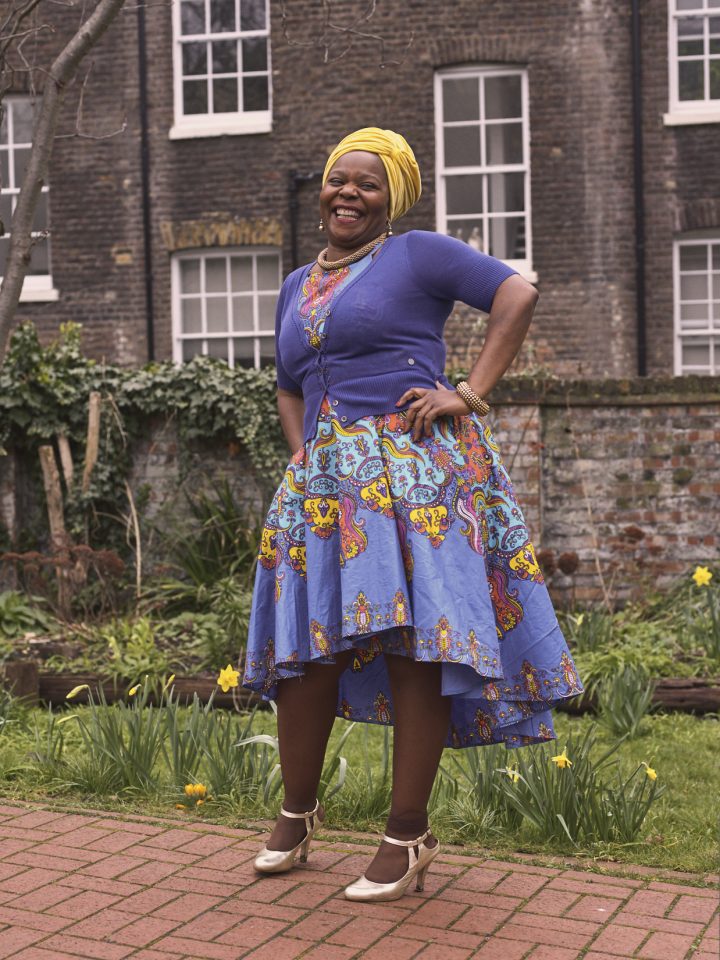It’s 2018 folks! So why is it that 50% of HIV positive women in the UK are living in poverty and continue to suffer outdated attitudes when they access healthcare services? Following the launch of a new report that highlights these and other startling facts, we talk to Charity, a HIV positive lady, who refuses to let the disease dictate her life.
HIV, the virus that attacks the immune system and weakens the body’s ability to fight diseases, affects an estimated 101,200 people in the UK and an additional 5,000 more people are diagnosed every year. Of these, 12% are undiagnosed and do not know about their HIV infection.
Women and HIV – Invisible No Longer is a new joint-report from Sophia Forum and Terrence Higgins Trust that revealed some disturbing facts of women living with HIV in the UK, including how almost one third (29 per cent) have experienced violence or abuse while accessing healthcare services because of their HIV status, (42 per cent) have had mental health diagnoses since having an HIV diagnosis and a massive 45 per cent are living below the poverty line.
Surprisingly, despite these sobering statistics, morale is still quite high among the cohort who were interviewed with half (49 per cent) describing their quality of life as ‘good’ or ‘very good’, while a further 38 per cent would call it ‘acceptable’.
In fact, one third (30 per cent) of women living with HIV said their lives have improved since diagnosis, compared to under one quarter (23 per cent) who said it has become worse.
The study also explored a very important aspect of the discussion. How many of us really know how to protect ourselves from HIV? A separate group of respondents who are not HIV positive, were questioned. Almost all of them (96 per cent) said they were (‘very’ or ‘quite’) well-informed about how to protect themselves from HIV, including three quarters (74 per cent) who had heard of pre-exposure prophylaxis (PrEP), which is when people at very high risk for HIV take HIV medicines daily to lower their chances of getting infected. Read how to reduce your chances of getting the infection.
So, what’s the reality of living with HIV? We asked Charity, 48, some questions on certain aspects of her experience. Read on…

On support groups
Initially, she was unaware of support groups, “I said what the hell is a support group”. Scared to go because she was worried about stigma and worried that she would find judgey people from her country, she went anyway. “It was helpful,” she said.
Treatment
Her experience of treatment? “I was small [slim] my whole life and then all the sudden, I was like bumph, my stomach was there, my face was there. I came out with a rash, big ones, my hair was falling out, my scalp was dry and flaking. They gave me e45 for my skin which had turned dry, dark and grey-like. All you could see was my lips that were reddish. The medication was horrible. The first three months was horrible. I had scary dreams and suicidal thoughts.”
But after a while, things improved. She adds: “But after that I loved that medication so much. I would be hyper all the time. I used to go dancing. I would dance non-stop. I couldn’t sit.”
Stigma
Has she experienced much stigma? She said: “Not much, but I did experience it once at the hospital. I remember there were about four people outside in the corridor and the receptionist goes: “You know you’re going to be the last one to be seen?” I said, “No I don’t know” and she says, “Yeah because you are HIV positive, so you’ll be the last one to be seen.” Then this other lady said “She’s out of order” about the receptionist. I just kept quiet, but I was hurting inside. But I did complain to the consultant.
Dating
What about relationships? “With this one guy, I disclosed my status straight away. I always do even though you’re not supposed to. But when I meet somebody, if I like that person, before anything goes deep, I just say it. This guy really liked me, and I liked him too. I wanted to get things out in the open before things got serious, so I disclosed. I said: “I like you but I’m HIV positive”. He went quiet like he was not listening. He called me the next day and said: “I heard you last night. I don’t know anything about what you said, I have no clue what you are talking about. Can you please explain to me?” So, I just explained the basic things, and he was like “Oh so we have to use condoms?” and I said yes, we have to, and he asked me to teach him about it? He was willing and so I said I can give him more information. When he comes back he says: “I have to be with you”. I am still with him.
When to disclose?
“I’m upfront and I just say I’m HIV positive. I’m very comfortable. I have had other women living with HIV who inspired me. I think it was also through volunteering and doing stuff with charitable organisations, all of that brought me out of my comfort zone.”

Four important facts you need to know:
- There is still a great deal of stigma about HIV. Stigma is damaging as it prevents people from getting tested, from accessing treatment and from living a happy and healthy life.
- The most common way HIV is transmitted is through sex without a condom
- You cannot get HIV through casual or day-to-day contact, or kissing, spitting or sharing a cup, plate or toilet seat.
- People living with HIV on effective treatment can’t pass it on. Read more here.
You can find out more information or read the full report at www.tht.org.uk/invisiblenolonger












